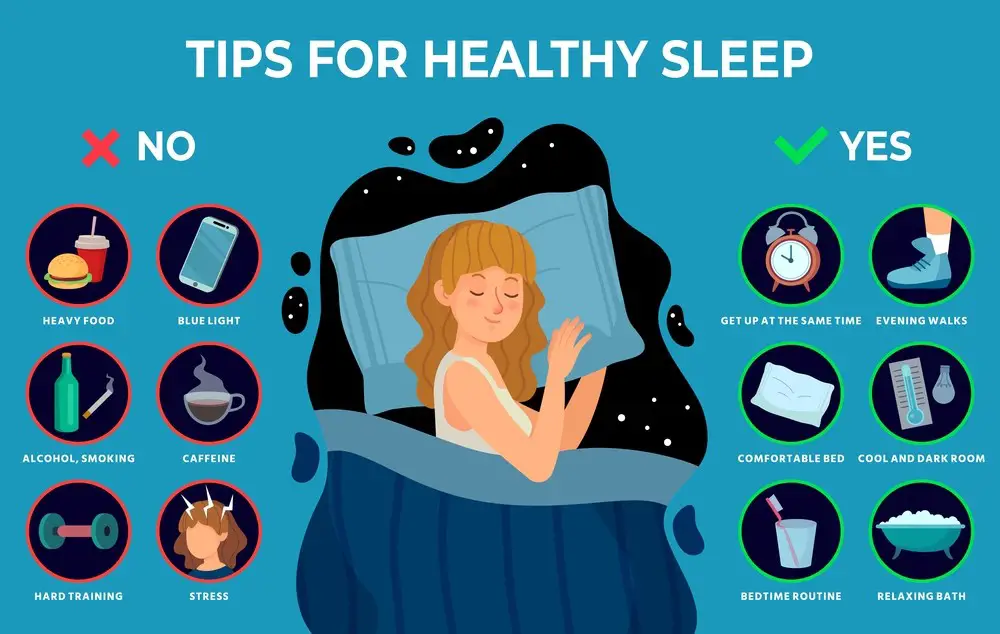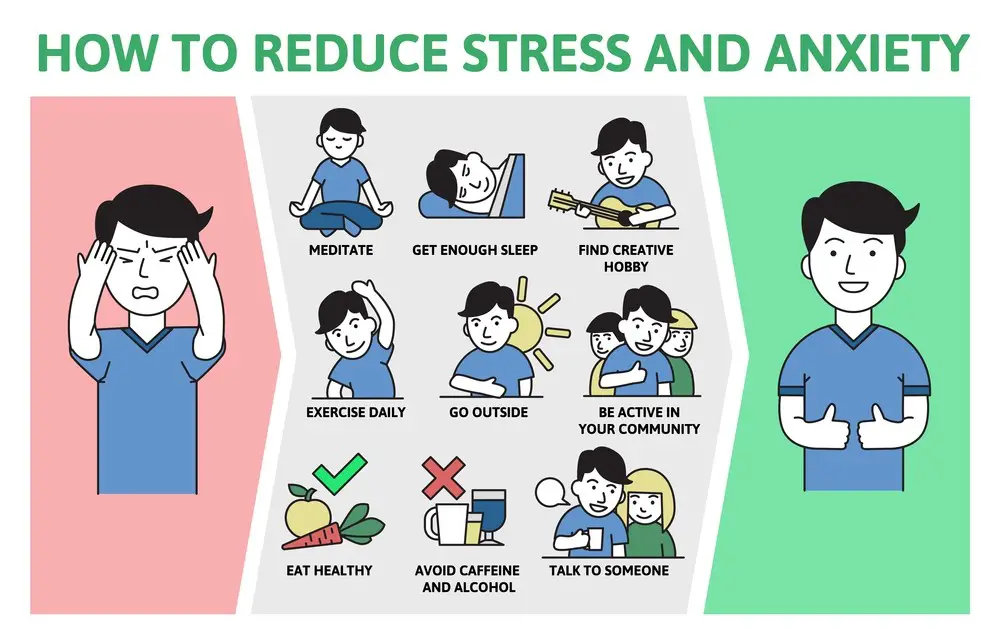As a BetterHelp affiliate, we receive compensation from BetterHelp if you purchase products or services through the links provided
If you’ve ever pulled an all-nighter and felt queasy the next day, you might wonder if there’s more to it than coincidence. Could nausea be linked to sleep deprivation? It’s a question many have pondered, and we’re here to shed some light on it. In this blog post, we’ll explore:
- The science behind why lack of sleep could make you nauseous
- How other factors like stress and diet play a role
- Strategies for tackling both sleep deprivation and nausea
So, whether you’re a night owl, a stressed parent, or just curious, read on to discover how your sleep quality might affect more than just your energy levels.
Understanding the Relationship
The Sleep-Nausea Connection
Nausea is a sensation that most of us have experienced at some point in our lives. It’s often associated with various factors, from dietary choices to illness. However, what may surprise many is the emerging understanding of a connection between when you feel nauseous and sleep deprivation.
Overview of the Link
Recent research suggests a significant and intricate connection between the two. Sleep disturbances or deprivation disrupts the body’s delicate balance and can trigger physiological and psychological responses, including nausea. Nausea, in this context, refers to the sensation of nausea or an inclination to vomit rather than an actual vomiting episode.

Scientific Insights
Scientific studies have shed light on the mechanisms behind the sleep-nausea connection. One key factor is the disruption of the body’s internal regulatory systems. Sleep is essential for maintaining hormonal balance, and poor sleep quality can lead to hormonal imbalances that contribute to nausea.
Real-Life Experiences
Many individuals who have experienced chronic sleep deprivation report episodes of nausea, especially in the morning. This connection is not merely anecdotal; it underscores the practical implications of understanding and addressing sleep-related nausea in everyday life.
Also Read: Achieving Tranquil Sleep: A Path to Balanced Well-Being
How Sleep Affects Nausea
Body’s Regulatory Systems
One of the ways sleep affects nausea is through the body’s regulatory systems. Sleep plays a crucial role in regulating various bodily functions, including the release of hormones and neurotransmitters. When sleep is disrupted or insufficient, the body’s ability to maintain these systems is compromised. For instance, sleep deprivation can lead to increased levels of stress hormones like cortisol, which can trigger nausea.
Impact on Digestion
Sleep deprivation can also impact the digestive system. During sleep, the body undergoes crucial processes for digestion and metabolism. Insufficient sleep can disrupt these processes, leading to delayed gastric emptying and altered gut motility. These disruptions can contribute to feelings of nausea and discomfort, especially after waking up from a night of poor sleep.
Stress and Nausea
Sleep deprivation often leads to increased stress levels as the body struggles to cope with the demands of daily life without adequate rest. Chronic stress can trigger nausea directly, as it can affect the gut-brain axis, leading to gastrointestinal disturbances. Additionally, stress-induced insomnia can exacerbate sleep deprivation, creating a vicious cycle that contributes to nausea.
Also Read: Taurine for Sleep: Your Natural Ticket to Tranquil Nights
Symptoms and Signs
Recognizing Nausea from Sleep Deprivation
Identifying the symptoms and signs of nausea stemming from sleep deprivation is crucial for understanding the impact of inadequate rest on our overall well-being. Nausea, although commonly associated with various other factors, can result from sleep-related issues.

Common Symptoms
These symptoms may vary in intensity from person to person but typically include:
Queasiness: Individuals may experience a persistent feeling of unease in the stomach, often described as a sensation of “butterflies” or a mild urge to vomit.
Gastrointestinal Discomfort: Nausea may be accompanied by abdominal discomfort, including bloating, cramping, or a sensation of fullness.
Morning Nausea: Many individuals report feeling particularly nauseous after poor sleep. This morning, nausea can be a telltale sign of sleep-related nausea.
General Discomfort: Overall discomfort, sometimes described as a vague sense of “not feeling well,” can also indicate nausea caused by sleep deprivation.
Differentiating Causes
It is essential to differentiate nausea from sleep deprivation from nausea caused by other factors. While nausea can have numerous underlying causes, some key distinctions can help identify when sleep deprivation is a likely contributor:
Consistency: Nausea linked to sleep deprivation often occurs regularly, especially after nights of inadequate rest. Recognizing a pattern of nausea following poor sleep can point to the role of sleep in its occurrence.
Absence of Other Factors: If nausea is not attributable to dietary choices, underlying medical conditions, or medication side effects, it becomes essential to consider sleep quality and duration as potential factors of not being able to fall asleep.
Correlation with Stress and Fatigue: Sleep-related nausea often coincides with heightened stress levels and fatigue, which are expected consequences of insufficient sleep. Identifying these accompanying symptoms can further support the link to sleep deprivation.
Other Sleep-Related Symptoms
In addition to nausea, sleep deprivation can give rise to other uncomfortable symptoms that further underscore its impact on our well-being. These symptoms can be interconnected and may co-occur with nausea, providing additional clues to the underlying sleep-related issues.

Headaches
Headaches are a prevalent symptom of sleep deprivation. They often manifest as tension headaches or migraines, contributing to discomfort and malaise. The combination of headaches and nausea can be debilitating and indicate inadequate sleep.
Fatigue
Fatigue is one of the hallmark symptoms of sleep deprivation. It can manifest as physical tiredness, mental exhaustion, and a general lack of energy. Fatigue not only contributes to feelings of nausea but also impairs cognitive function and overall productivity.
Dizziness
Dizziness is another symptom that can accompany sleep deprivation. It can manifest as lightheadedness or unsteadiness, which may exacerbate nausea. Dizziness can result from disrupting the body’s equilibrium due to inadequate sleep.
Coping and Prevention
Managing Nausea Due to Lack of Sleep
Nausea from sleep deprivation can be distressing and disruptive to one’s daily life. Fortunately, there are strategies for coping with and mitigating this discomfort.

Lifestyle Changes
Prioritize Sleep: The most effective way to manage sleep-related nausea is to address its root cause—sleep deprivation. Commit to prioritizing sleep by setting a consistent bedtime and wake time. Aim for 7-9 hours of quality sleep each night.
Dietary Adjustments: Avoid consuming heavy, greasy, or spicy foods close to bedtime, as they can exacerbate nausea. Opt for light, easily digestible meals in the evening.
Stay Hydrated: Dehydration can worsen feelings of nausea. Ensure you’re adequately hydrated throughout the day, but avoid excessive fluid intake just before bedtime to prevent sleep disruptions.
Gentle Movement: Engage in light physical activity, such as stretching or a short walk, to help alleviate nausea. However, avoid vigorous exercise close to bedtime, as it can interfere with sleep.
Also Read: 10 Effective Techniques to Improve Your Sleep Quality

Sleep Hygiene Tips
Create a Relaxing Bedtime Routine: Create a relaxing bedtime routine with reading, gentle stretching, or meditation to signal your body it’s time to wind down.
Optimize Sleep Environment: Ensure your bedroom is conducive to sleep by keeping it dark, quiet, and comfortable. Invest in a comfortable mattress and pillows.
Limit Screen Time: The blue light emitted by electronic devices can interfere with your body’s production of melatonin, a hormone crucial for sleep. Avoid screens at least an hour before bedtime.
Caffeine and Alcohol: Avoid consuming caffeine and alcohol before bedtime, as they can disrupt sleep patterns and contribute to nausea.
Preventing Sleep Deprivation-Induced Nausea
Prevention is key when it comes to addressing sleep deprivation-induced nausea. Adopting strategies for adequate sleep and overall well-being can significantly reduce the likelihood of experiencing this discomfort.
Establishing a Sleep Routine
Consistent Schedule: Maintain a regular sleep schedule by going to bed and waking up at the exact times every day, even on weekends. This helps regulate your body’s internal clock.
Bedtime Ritual: Develop a calming bedtime routine that signals your body that it’s time to sleep. This might involve reading, taking a warm bath, or practicing relaxation exercises.
Limit Naps: Short power naps are refreshing, but avoid long or irregular daytime naps as they disrupt nighttime sleep. Opt for a brief (20-30 minutes) nap earlier in the day to ensure a good night’s sleep.
Stress Reduction Techniques

Mindfulness and Meditation: Incorporate mindfulness meditation or deep breathing exercises into your daily routine. These practices can help reduce stress and anxiety, improving sleep quality.
Stress Management: Identify and address sources of stress in your life. Consider talking to a therapist or counselor if stress is a persistent issue.
Relaxation Techniques: Engage in activities that promote relaxation, such as yoga, progressive muscle relaxation, or guided imagery. These practices can help prepare your body for restful sleep.
Seeking Professional Help
Consult a Healthcare Professional: If you are sleep deprived, and the resulting nausea persists despite lifestyle changes and preventive measures, consider seeking help from a healthcare professional. They can assess your condition, provide guidance, and rule out underlying medical issues.
Sleep Specialist: In cases of prolonged sleep deprivation or sleep disorders, consulting a sleep specialist may be necessary. They can conduct sleep studies and recommend targeted treatments to prevent sleep deprivation and improve sleep quality.
When Medication Should Be Considered
While lifestyle changes are often the first line of defense, there are situations where medication might be a prudent choice for tackling sleep deprivation or nausea—or both.
- Chronic Issues: If you’re consistently struggling with sleep or experiencing nausea, and it’s affecting your quality of life, medication could offer relief.
- Failed Home Remedies: Sometimes, sleep aids or anti-nausea remedies like chamomile tea or ginger just don’t cut it. That’s when a stronger approach may be necessary.
- Medical Advice: Always consult healthcare professionals before starting any medication. They can help diagnose the underlying issue and recommend appropriate treatment.

Signs You Need Help
Not sure if your symptoms warrant medical attention? Here are some signs that it’s time to seek help:
- Frequent Sleepless Nights: It’s a red flag that shouldn’t be ignored if you’re regularly tossing and turning.
- Consistent Nausea: Feeling nauseous now and then might not be a big deal, but if it’s a constant companion, that’s a different story.
- Impact on Daily Life: If lack of sleep or nausea makes work, socializing, or daily activities difficult, it’s time to get some advice.
- Co-occurring Symptoms: Experiencing other issues like migraines, extreme fatigue, or mood swings? These could be related and should be addressed.
Setting Goals
Taking control often starts with setting achievable goals. Here’s how to set yourself up for success:
- Better Sleep Hygiene: Aim for a consistent sleep schedule, even on weekends. Create a calming bedtime ritual to wind down.
- Dietary Changes: If nausea is a problem, consider eating smaller, more frequent meals and avoiding trigger foods.
- Regular Exercise: Light to moderate exercise can promote better sleep and may help with nausea.
- Mindfulness Techniques: Relaxation methods like deep breathing can help with sleep deprivation and nausea.
Measuring Progress
Last but not least, you’ll want to keep an eye on how you’re doing so you can adapt your strategies as needed.
- Sleep Tracker: Some various apps and devices can monitor the quality of your sleep. Use them to see how you’re doing over time.
- Symptom Diary: Keep a daily journal of when you feel nauseous or have difficulty sleeping. Look for patterns and triggers.
- Weekly Check-in: Take some time each week to evaluate how well you’re sticking to your goals and what the results have been.
- Consult a Professional: Periodic check-ups can provide valuable insights into whether your strategies are working or if you need to consider other options like medication.
Taking a systematic approach to tackling sleep deprivation and nausea can help you understand the complex relationship between the two and, most importantly, help you feel better in the long run.
Frequently Asked Questions (FAQs)

What are the common symptoms of sleep deprivation-induced nausea?
Common symptoms of sleep deprivation-induced nausea include queasiness, gastrointestinal discomfort, morning nausea, and a general sense of unease or discomfort.
Can lack of sleep cause nausea in the morning specifically?
Yes, lack of sleep can cause nausea in the morning specifically. Many individuals report feeling nauseated upon waking after a night of poor sleep.
Is there a difference between sleep-related nausea and motion sickness?
Yes, there is a difference between sleep-related nausea and motion sickness. Sleep-related nausea is often linked to inadequate sleep, while motion sickness results from sensory conflicts, typically during travel or movement.
- Left Arm Pain and Anxiety: Understanding the Relationship - November 23, 2023
- Anxiety Paralysis: Coping with Overwhelming Stress - November 23, 2023
- Anxious vs. Nervous: Differentiating Emotions and Responses - November 15, 2023
This site contains affiliate links to products. We will receive a commission for purchases made through these links.



